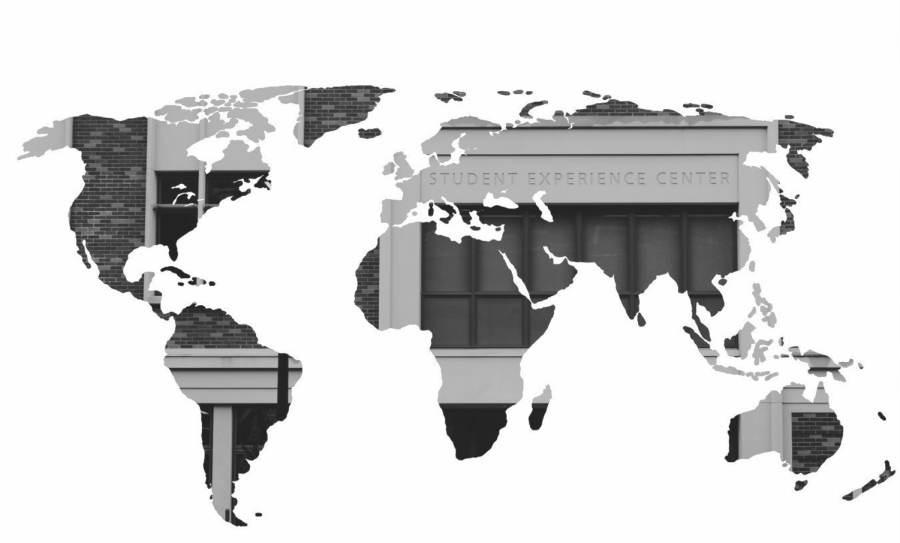International Student Community Team promotes inclusivity through action
February 27, 2017
Despite there being a student organization on campus that engages over 300 people from all over the world, with members from Africa to the Middle East, you might not have heard of them or their work.
The group is the International Student Community Team, chaired by four international students. The group is new as of fall 2016, replacing International Students of Oregon State University.
According to Noor Al Awaisi, one of the group’s four leaders, the ISCT’s intention is to celebrate all cultures, and to help international students integrate into the OSU community seamlessly. They welcome international students and domestic students by putting on a number of events throughout the year with the office of Diversity and Cultural Engagement.
The ISCT’s most popular event is “ISCTime”, where students can connect with members of other cultures, enjoy free food, and play games. In order to better promote inclusivity, each ISCTime takes place at a different cultural center.
According to Al Awaisi, ISCT teaches students about different cultures and tries to eliminate negative connections people may have with them.
“This is one thing that makes us different from a club,” Al Awaisi said. “If I hear, ‘club’, then there’s something they all share. Ours, the more unique segments you have, the more you’re welcome and qualified to be part of our student community.”
Al Awaisi believes that all students are welcome with the ISCT as long as they are open to experiencing new cultures.
“It doesn’t matter where you’re from, as long as you have that global beaver in you,” Al Awaisi said.
Al Awaisi is originally from Oman, but came to North Carolina in 2014 for school. Last fall, she transferred to OSU.
“I found what I was looking for,” Al Awaisi said.
Wequing “Wendy” Zhang, another one of the student leaders, is a sophomore in electrical engineering, and is originally from China. Zhang said when she first came to OSU, she was very worried about fitting in.
“I came here right after I graduated from high school, so I wasn’t really mature. So in the first year I was here, I was trying to fit into the whole American college atmosphere. There was a time, I thought, I was kinda lost. Should I be proud of my own culture, or should I just fit into American culture?”
Zhang said that ISCT is all about building a community, and that this community allowed her to recognize that all cultures are unique
and worth celebrating.
“It’s a safe place for people to come engage,” Zhang said.
Syed Arsal Rahim, another student leader, said that ISCT is a place where international students can speak freely.
“They feel safe first, and then start sharing thought, start sharing cultures,” Rahim said.
Rahim feels that, when it comes to comparing cultures, students may be worried that their heritage or traditions may be viewed as inferior, but says with the ISCT students have a safe place to share their cultural viewpoints.
“Everybody’s right, on their side,” Rahim said. “Nobody’s wrong.”
Rahim came to OSU in 2015 from Pakistan, and is working on his master’s degree in business. He said he struggled his first year, but since then has found a home.
“Firstly, people in Corvallis are really nice. Secondly, this organization, this institute, every program, is pretty much student-led,” Rahim said.
“(A student community) brings inclusivity, of all students, irrespective of your nationality, or your tribe.” Phebean Adekunle, the final of the four leaders, said.
Adekunle is from Nigeria and is in her fourth year at OSU, pursuing a master’s in women, gender, and sexuality studies. She came to Oregon State to learn more about a predominantly white culture.
“I’ve always been this person who has passion for diversity. That was one of the reasons I chose OSU, because there’s this curiosity, like, ‘what’s happening at white schools like this school?’ So far, it’s been good.”
The four members of the leadership have no formal positions, but instead function by supporting and relying on each other to accomplish the group’s mission, according to Adekunle.
Interested students can attend the next two installments of “ISCTime” which will take place on March 1 at the Lonnie B. Harris Black Cultural Center, from 3 p.m. until 5 p.m., and on March 8 at the Asian & Pacific Cultural Center, from 3:30 p.m. until 4:30 p.m.
























































































































